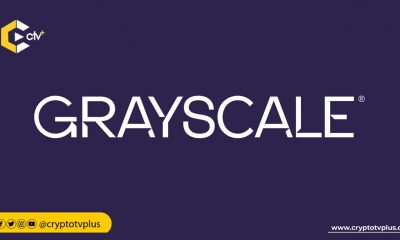News
Osprey seeks review of failed Grayscale lawsuit

Osprey, an ETF issuer, is requesting a judge to reconsider its dismissed lawsuit against Grayscale.
Osprey Funds lost its unfair trade practice lawsuit against Grayscale in a Connecticut court, yet it is now pushing for a review of the decision.
Osprey Funds has petitioned a Connecticut state court judge to reexamine his ruling, which awarded Grayscale Investments a victory in the $2 million lawsuit over its Bitcoin fund.
Claiming that Judge Mark Gould ruled “before the close of discovery” and expanded an exemption in the Connecticut Unfair Trade Practices Act, Osprey submitted a motion for reargument to Connecticut’s Superior Court on Feb. 10.
Osprey accused Grayscale and Delaware Trust Company, the trustee of its main spot Bitcoin ETF, of falsely promoting the Grayscale Bitcoin Trust (GBTC) to gain a competitive edge and sued them in January 2023.
Osprey argued in the lawsuit that Grayscale led investors to believe an ETF approval was “a foregone conclusion” even though it knew approval was unlikely.
Judge Gould ruled in favor of Grayscale on February 7, stating that Osprey’s lawsuit involved securities trading, which the act does not cover.
He added that when Osprey filed the suit, it and Grayscale “were the only two asset managers in the marketplace of opportunities for trust-based products offering ticker-based exposure to Bitcoin.”
After Osprey lost its case against Grayscale, the SEC approved GBTC’s shift to an ETF in January 2024, exactly a year after the lawsuit.
In July 2024, Osprey claimed it was ready to settle its legal battle with Grayscale for a little less than $2 million, but Grayscale rejected the offer.
In its February 10 filing, Osprey argued that Judge Gould’s ruling failed to distinguish between how the FTC and Connecticut courts handle deceptive advertising and how Connecticut and federal securities laws treat securities transactions.
Read also: Bitwise: US Bitcoin ETFs could reach $50B in 2025
“The limited implied exemption from CUTPA for claims based on ‘securities transactions’ has never been applied, as the Decision implicitly applied it here, to claims arising from deceptive advertising between competitors merely because they do business in the securities, asset management, or cryptocurrency industries,” Osprey wrote.
Osprey asserted that it and Grayscale did not engage in “any securities transaction with each other” and maintained that its claims do not concern a securities transaction “being deemed fraudulent, deceptive, or otherwise actionable between the parties to it.”
“Rather, Osprey’s claims focus on the extent to which Grayscale’s unfair competition, based on deceptive advertising, diverted market share from Osprey,” the firm’s lawyers wrote.
Osprey reported last month that it had notified the SEC of its plans to convert its Osprey Bitcoin Trust (OBTC) into a spot Bitcoin ETF after its merger deal with Bitwise collapsed.

























1 Comment